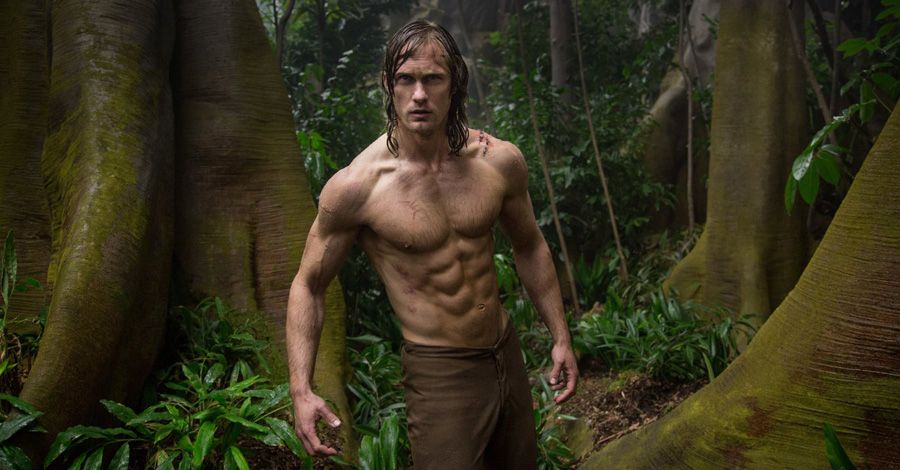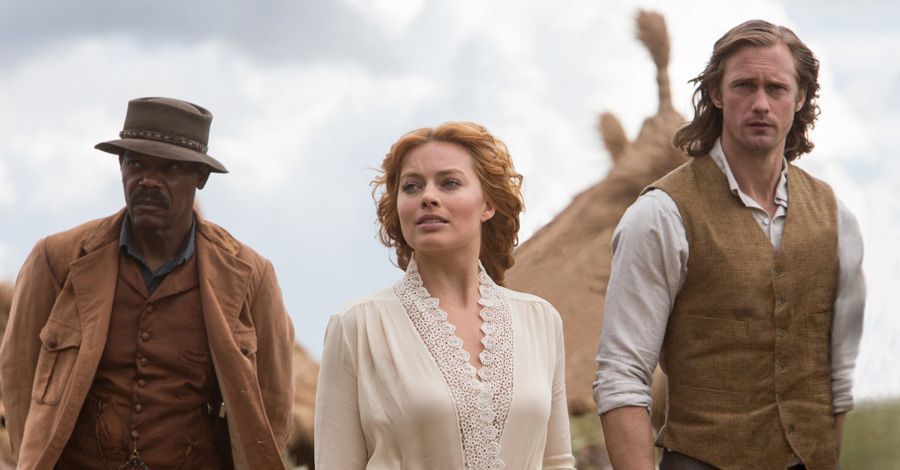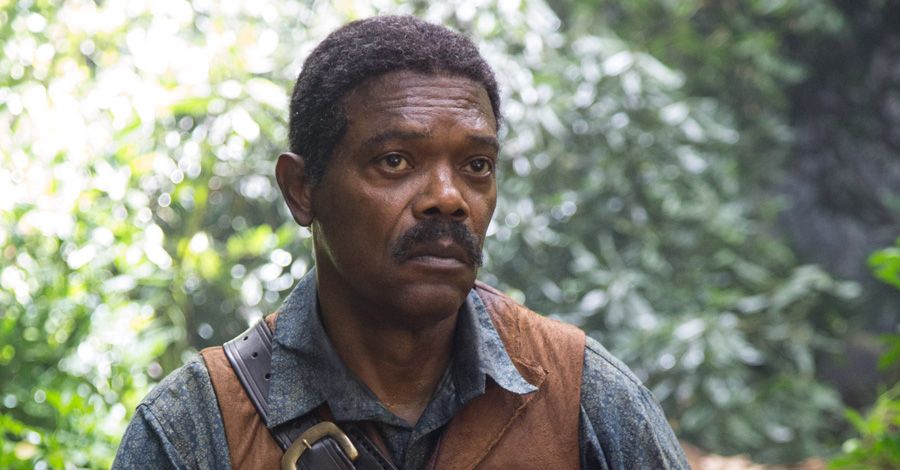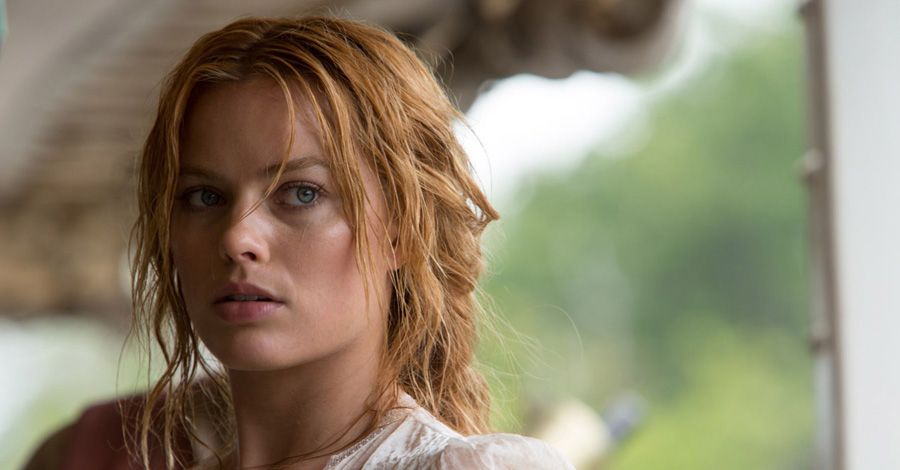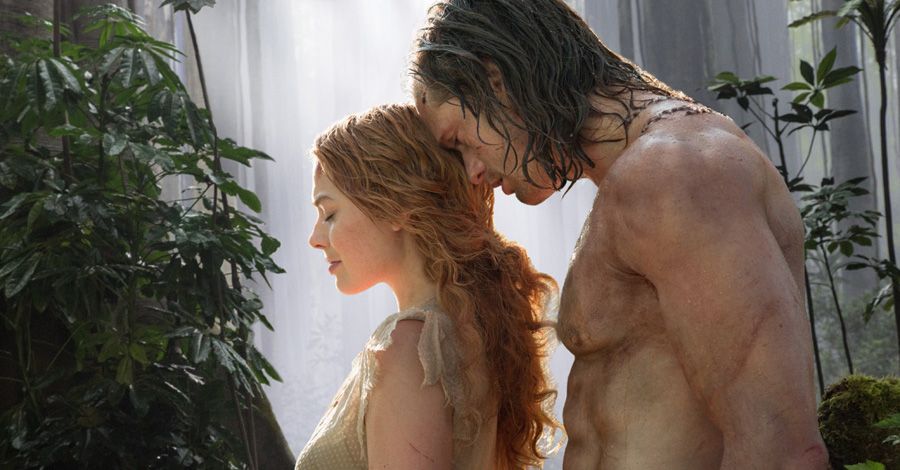In the more than a century since author Edgar Rice Burroughs wrote the first adventure of the British lord raised by apes in Africa, Tarzan has appeared in dozens of films, becoming a cultural icon as recognizable as Superman, James Bond and Sherlock Holmes.
With Lord of the Jungle returning to the big screen once again in “The Legend of Tarzan,” which opens Friday nationwide, director David Yates and stars Alexander Skarsgard, Margot Robbie and Samuel L. Jackson met with journalists to offer their thoughts on why the character still feels relevant today, and reflect on the modern flourishes their new brings to the familiar tale.
David Yates: I was reading lots and lots of scripts after “Potter,” and this script called “Tarzan” turned up. I opened it and it blew me away because it was way removed from my expectations. I think what’s amazing about this character is his deep connection to the natural world, which I think is very profound, and actually quite moving.
And as the natural world and what’s happening to it becomes more important to us all, I think there’s something very fresh, there’s something very contemporary about that; and the fact that he connects to our ancestors to where we began I think is very beautiful and very moving.
Actually I think what this script had that all the other blockbusters I was reading didn’t have was, for the use of a better word, a sense of sex about it, in the best possible way. It was sensual and it was kind of sexy and kind of beautiful. It had a big beating heart. And a lot of these big action-driven movies didn’t quite have [that]. They were kinetic and they were explosive, but they didn’t have a big beating heart. And there’s something about this classic story about these two characters in particular, Tarzan and Jane, and how they’re incomplete without each other, that I found really moving.
This movie has all the action, all the epic landscapes. The politics are fascinating, which again, some of these big movies I was reading didn’t have. But it has this wonderfully iconic relationship, which I think is timeless and beautiful.
Alexander Skarsgard: I was actually a big Tarzan fan as a kid – the old Johnny Weissmuller movies, because of my father, who is one of the biggest Tarzan fans out there. He would every Saturday go to the matinee in the small town in Sweden where he grew up and watch the old movies. So he introduced me to Tarzan. That’s how I fell in love with him and the jungle and that whole world. So yeah, I was obviously very excited when I heard about the project.
But again, of course it’s been told – what is it? – 200 times over the past 100 years? You always have to figure, “Why are we doing it again? What’s the motivation? Why are we embarking on this two-year-long adventure?” You just open the script and it’s him drinking tea with the prime minister. I just thought it was so brilliant. The fact that it’s more about returning to your roots than taming the beast, I thought that was so smart.
Margot Robbie: My version of Tarzan was the Disney animated version, which I loved. I love that movie. At no point was I like, “Oh, one day I want to grow up and play Jane,” but that was my exposure to it. When I read the script, it just felt very epic, and fresh, and amazing, and exciting, and all these things.
But it is still a well-known story, and one that involved a lot of elements that in the wrong hands I think could end up kind of cheesy. When I heard David Yates was going to be the one directing it, someone who took the “Potter” movies, again, something that in the wrong hands could have ended up being made cheesy or not really relevant to you or whatever, and kind of gave it this cool, real, like still such a magical feel, but realness in it.
I thought that’s exactly what this script needed, and this is the exact person to kind of create this magical world with like real relationships, real people, real scenarios in it. So I was really confident to sign on.
Yates: I saw the movie when I was a kid. Johnny Weissmuller. They ran them at Christmas time every single day. I found them sort of reasonably charming, but it was not … I was never really a Tarzan fan. But then I got this screenplay and it really excited me. Excited me because you’re taking quite an iconic character, and you were doing, you’re exploring some really interesting ideas and themes, all within the package of this exciting, romantic adventure.
So I wasn’t a huge fan to begin with, but then I fell in love with the script. And then I was lucky enough to work with all of these guys, all of whom brought authorship to the process of creating these characters and making them much more than they would have otherwise have been, I would say.
Samuel L. Jackson: I watched Tarzan through I’m sure more iterations than all these guys. I’m older than everybody. I started watching Tarzan, I went all the way back to Lex Barker Tarzan movies, where the call was even different. And I’ve seen Lex Barker, Johnny Weissmuller, Jock Mahoney, Gordon Scott … So I’ve been watching “Tarzan” for a very long time.
The questions we’ve always had about Tarzan are answered in -- some of them are answered in an interesting sort of way in this film because of his relationship with those gorillas and who those gorillas are. And how even inside that gorilla family, that female gorilla and her son treated him differently than all the other gorillas, who had resentment and everything else – some cyber-bullying going on!
He keeps getting taken in, you know? He’s out there, and family’s destroyed, and he gets taken in by this gorilla family. Once she discovers him, he’s taken in by these Africans in this village. He’s taken in by those people. Then he gets back to London and he’s taken in by some more people. So it’s a story about family over and over again, and there’s something very attractive about this guy that allows him to be taken in.
He gets taken in by that family, gets taken in by the next group of people, and there’s genuine love for him in those families, and he’s part of those families, but he’s trying to be in another world where he doesn’t really fit in. He’s trying hard, but he’s a square pig in that round hole. When he gets back [to the jungle], he realizes, “OK – this is what the love is.”
So his worlds are very interesting and diverse, and it’s a wonderful kind of familial love story that we’ve never seen associated with Tarzan, that I related to in another kind of way. I’m getting a little misty sitting here.
Skarsgard: And it also gives him the vulnerability. Like you said, the fact that it’s about an orphan boy who wants to find his family. So it makes this relationship so much more interesting when they’re separated. You feel that it’s not the damsel in distress that he has to go save. He is a lost orphan boy. She’s his anchor, and he needs her. They need each other. That’s what makes, hopefully, the audience root for them to find each other, fight for them to get back together.
Robbie: It’s important to make sure that a contemporary audience could relate to Jane. The book was written a really long time ago, and I think ideologies have changed since then. David and I spoke right from the beginning about, mainly first and foremost, there is a love story at the core, and I don’t think that being in love with your husband should be a weakness. I think that actually makes her stronger. So I wanted that definitely to be the focus.
But then, though they are so dependent on each other and can’t live without each other when they are apart – which they are a lot of the movie – they are incredibly capable when they are alone. It just would have been kind of boring to watch her sitting there waiting to be rescued. It’s far more entertaining to watch her getting herself out of the predicament as well.
So it worked on a character level, it also works on an entertainment level. So I think that, yeah, it was just important to make sure that she could be relatable to women watching. I don’t want to sit there and think, “Oh, I wouldn’t do that. I would do this.” I hope women watching would be like, “Yeah, go girl!”
Jackson: When I spoke to David and we started talking about George Washington Williams, [it was] my first time hearing about it: He’s a real guy. So David sent me all the source material, and I started reading through the stuff. I was totally captivated by it. I read “King Leopold’s Ghost” and realized exactly how serious all this was, and the nature of his wanting to be there and the information he was trying to impart to our government and to the queen and all these other people that Leopold was trying to get money from. And the devastating effect that [Leopold] was not just having on the continent of Africa, but definitely on the Congo, and what it meant in terms of one of the first real Holocausts that occurred on this planet, and Leopold was responsible for it.
So all of a sudden, I realized, “OK, I’m not just playing some adventure guy with a pair of big guns. I’m playing a really important person that had a raison d’etre for being there.” When you explore his life and you find out that he was in the Civil War, from the Civil War to the Mexican-American War, from the Mexican-American War, to the Cavalry, and what he himself discovered in looking at Rom and that army, and that he was part of an army that did the same thing to the indigenous people of this country, which put an enormous burden on him.
He was a bit of a rogue too. He wasn’t just a straight-up kind of good guy. He lied and gave himself titles that he didn’t have. He was a black person trying to make it in that particular world at that particular time, and he was able to do that though grit and guile and a lot of different things.
I spent time at his grave in Liverpool, which was kind of profound and moving for me to actually have that particular moment and think about what I’d done, and hopefully I’d done some justice to his particular character when people see him. And hopefully people will be intrigued enough by him to read those books, or to investigate who he really was, and what he did find out, and the things that he actually stood for.
Skarsgard: [Tarzan] is lost between these two worlds. Growing up in the jungle surrounded by his ape family. He is a member of the family, but he knows he’s different. He doesn’t quite fit in. He doesn’t look like his brothers. And then, when we first meet him in the movie, he’s in London, and he kind of looks like people around him, but he doesn’t fit in. So he’s with his humans around him, but his heart is still in the jungle.
It’s something psychologically interesting about that dichotomy about the kind of, “Where does he belong?” And the sophisticated British lord who deep down is an animal – that creates a very interesting friction between man and beast. That I think is obviously on an extreme level, but I think it’s something that all humans can relate to, because we all have that duality. We’re civilized human beings, but deep down, we have these animal instincts and urges.

